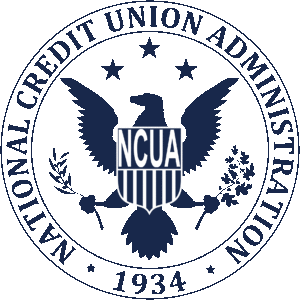NASCUS Summary: April 2023 NCUA Board Meeting Summary
By Sarah Stevenson, Vice President, Regulatory Affairs, NASCUS
 During the April meeting, the NCUA Board had three items on its agenda. These included a Board Briefing and update on cybersecurity, a proposed Request for Information and Comment focusing on climate-related financial risks, and a Board Briefing on the Federal Credit Union Loan Interest Rate Ceiling.
During the April meeting, the NCUA Board had three items on its agenda. These included a Board Briefing and update on cybersecurity, a proposed Request for Information and Comment focusing on climate-related financial risks, and a Board Briefing on the Federal Credit Union Loan Interest Rate Ceiling.
The Cybersecurity Update addressed what the agency has identified as key threats to the credit union ecosystem and financial sector. The threats discussed were:
- Ransomware and Extortion Operations
- Social Engineering and Open AI Platforms
- External-Facing Application Vulnerabilities
- Misconfigurations in Cloud Environments
- Distributed Denial of Service Attacks (DDoS)
- Geopolitical Issues
At the April meeting, the Board received a briefing on the NCUA’s Cybersecurity Policy and Programs, including the Information Security Examination Program and the White House National Security Cybersecurity Strategy. The Board discussed the agency’s efforts to raise awareness of cybersecurity risks to the credit union industry through training, outreach, partnerships, and resources on the Cybersecurity Resources page. During the Q&A portion, Chair Harper emphasized the need for NCUA to seek third-party vendor authority to monitor cybersecurity risks better. The Board acknowledged that this authority could also benefit smaller credit unions and aid in information sharing under the new Cyber Incident Notification final rule.
Additionally, the Board approved a Request for Information and Comment on Climate-Related Financial Risk in a 2-1 vote, with Vice-Chair Hauptman dissenting. Through this RFI, the NCUA aims to gather information from the industry on the current and future climate and natural disaster risks to FICUs, related entities, their members, and the NCUSIF.
The RFI consists of 38 questions specific to the impact of climate risk and is broken into a handful of categories, including:
- Physical Risk
- Transition Risk
- Operations
- Governance
- Business Strategies
- Risk Management
- Reporting and Targets
- Climate-related Opportunities
- Suggestions for NCUA
- Data Gathering
- Questions for NCUA
During the presentation, the Board and staff emphasized that any information shared by credit unions in response to the RFI on Climate-Related Financial Risk will not be used in their examination and supervision. They also clarified that any new requirements related to climate-related financial risk would require changes to examination and supervision procedures and approval from the Board before implementation. The RFI aims to gather feedback that will enhance the NCUA’s ability to identify and evaluate climate and natural disaster risks for credit unions. The agency will accept comments on the RFI for 60 days after publication in the Federal Register.
Board Briefing, Federal Credit Union Loan Interest Rate Ceiling
In January 2023, the NCUA Board voted to extend the Federal Credit Union Loan Interest Rate Ceiling to 18% for a period of 18 months, as allowed by the Federal Credit Union Act. The Board also committed to evaluating the feasibility of raising the interest rate beyond the current statutory limit of 15% and exploring the possibility of a floating interest rate.
During the April 20th meeting, the Board received a detailed topic analysis. After careful consideration, the Board concluded that a floating interest rate ceiling would not benefit the industry at this time, despite being permissible under certain conditions. Instead, the Board will continue to monitor the industry and the rate environment, and reevaluate its position
.
Related Links: